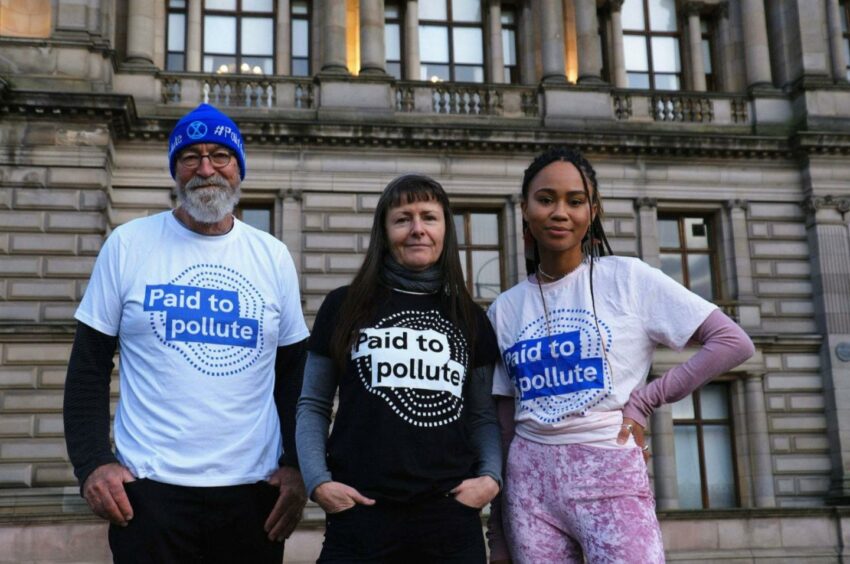
A group of campaigners will see their day in court as they challenge the UK government over its plans for continued North Sea oil recovery, which they allege are in conflict with the country’s net zero goals.
Paid for Pollute, backed by the non-profit Uplift and several other groups including Greenpeace and Friends of the Earth, will see a judicial review into the UK Government’s support for the Oil and Gas Authority’s (OGA) strategy begin on Wednesday 8 December.
The case was granted permission to proceed in July, via a High Court order. Mrs Justice Thornton stated the claimants had “presented an arguable case” which was “in the public interest”.
The legal challenge names the defendants as the OGA and the Secretary of State for Business, Energy and Industrial Strategy, currently Kwasi Kwarteng, who is responsible to Parliament for the OGA and sets its policy.
Their claim focuses on the government’s support of the OGA’s new strategy, which came into force in February and defined what is “economically recoverable” on a “pre-tax” basis.
The claimants argue that the OGA’s interpretation of its legal duty to “maximise economic recovery” (MER) of oil and gas fails to take account of the billions of pounds of public money supporting the industry.
They say this fails to account for tax breaks and decommissioning refunds granted to the industry, and therefore while some fossil fuel production may be economic to operators, it is not economic for the UK as a whole.
Paid to Pollute also argues that the OGA’s strategy is inconsistent with the UK’s legal duty to achieve net zero emissions by 2050 because it will lead to more oil and gas being extracted than would be the case if uneconomic fossil fuel stayed in the ground, thereby causing greater greenhouse gas emissions.
Named claimants include Mikaela Loach, a climate activist and medical student at the University of Edinburgh; Kairin van Sweeden, an SNP Common Weal organiser and daughter of a Scottish oil worker; and Jeremy Cox, a former oil refinery worker.
They are represented by Rowan Smith, a solicitor at law firm Leigh Day.
Speaking in November, Mr Cox said: “Just weeks after world leaders gathered in Glasgow and the Prime Minister urged them to keep the 1.5°C target alive, the UK government will have the hypocritical audacity to argue in High Court that it should continue to subsidise new oil and gas production.
“We know every new oil and gas project is incompatible with the 1.5°C target.”
He called on the government to listed use public money “wasted on oil and gas extraction” to fund a just transition and support other countries to decarbonise.
The group would appear to have public opinion on their side. Findings from a June poll carried out by ICM Unlimited on behalf of the campaigners found that 63% of respondents believe government spending on North Sea oil should be reallocated to renewables like wind and solar, while 61% want a “concrete plan” to end extraction.
The case follows news late last week that Shell had decided not to move to a final investment decision on the controversial Cambo project. The major’s exit leaves questions over the future of the project, but has been hailed as a victory by campaigners.
Rebate or subsidy
For its part, the industry says that decommissioning relief does not constitute a subsidy but a “legitimate cost of doing business”.
Denmark, for example, offers decommissioning tax reliefs to operators over the course of their oil and gas fields’ lives, while in the UK operators can claim a rebate only once their fields stop production.
Decommissioning losses can therefore be offset against premium taxes paid on oil and gas production, in some cases dating back decades, leading to large lump sums being picked up by media outlets and the National Audit Office.
Decommissioning relief deeds (DRDs), signed by the government in 2013, also guarantee the amount of rebates firms can expect to receive.
To date, the industry has paid over £350bn in tax to the Exchequer, but, according to latest HMRC figures, a combination tax repayments and reduced receipts from the sector will cost the government around £18.3bn by 2065.
Speaking in June, Aberdeen University Professor Alex Kemp said: “Tax relief for decommissioning does not constitute a subsidy.
“It’s a profit-related tax system we have in the UK and the decommissioning costs are legitimate costs of doing business.”
Around £9.4bn of the £18.3bn is expected to come as a direct result of rebates for petroleum revenue tax and offshore corporation tax.
London rally
Ahead of the hearing, the group held a rally on Tuesday at Lincoln’s Inn Fields, in Holborn, London, along with the three claimants in the case.
The @PaidToPollute court case kicks off this week.
We’re joining the claimants and supporters at a rally in London as they take the government to court of UK financing of fossil fuels.#PaidToPollute #EndFossilFinance pic.twitter.com/UM1ZJ4Mrbl
— 350.org Europe (@350Europe) December 7, 2021
It featured speeches from campaigners and activists including Friends of the Earth, which is separately challenging the UK government decision to provide $1 billion in financing towards a liquefied natural gas project in Mozambique.
The judicial review case began on 7 December.
Friends of the Earth says the construction of the project alone will increase the greenhouse gas emissions of Mozambique by up to 10% by 2022. The end use of the LNG is estimated to be around 116 million tonnes of CO2 equivalent per year, or 4.5 billion tonnes over its lifetime, the group added.
